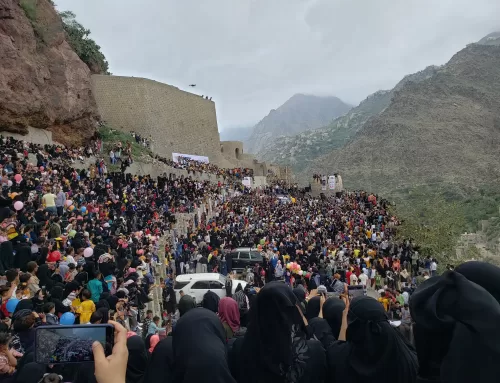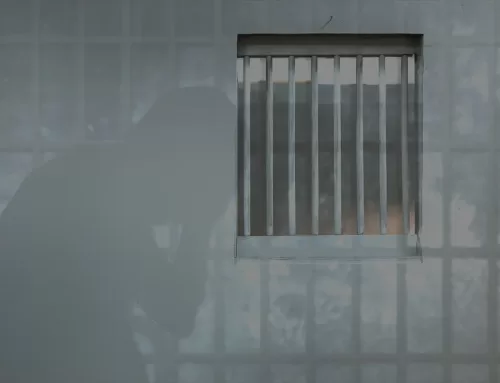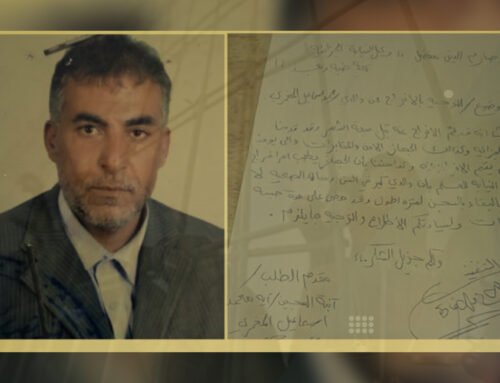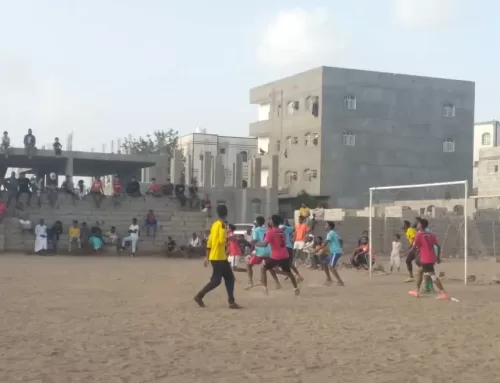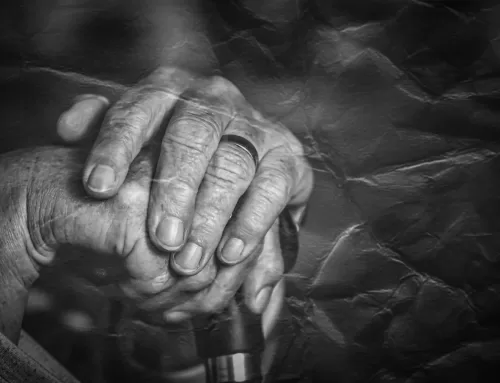4 April 2021
“I did not know that this day would change the course of my life for the worse, would destroy the present and future of my family, and make me handicapped,” Muna, 48 years old, said after a mine explosion in Zaom hill of Qahban village, Maqbanah district, Taizz.
On Sunday morning, January 25, 2020, Muna bid farewell to her young son “Raqeeb”, before going to graze the sheep and collect firewood with her little girl “Sawaher” and the women of the village.
Her village, in Maqbanah district, is subject to a suffocating siege by Ansar Allah (Houthis). Services, including household gas, are non-existent. Therefore, people depend on bringing firewood for cooking.
She says: “We went to the outskirts of Zaom hill, which has a lot of trees, to graze the sheep and collect firewood. While we were collecting firewood, one of the sheep ran up to the top of the hill, and I had to follow it and bring it back. Then, I lost consciousness and did not wake up until two days later.”
Muna, the victim, continued: “When I regained my consciousness, all I worried about was my little girl “Sawaher”, who was with me. I was feeling severe pain in the lower part of my body, and then I realized that my right leg had been amputated from above the knee; the left leg from below the knee.” Muna was the first civilian victim of the mines laid by Ansar Allah group (the Houthis) in the area, but she was not the last.
She says: “I wonder what sin we committed while living under siege, fear, terror, death, and a difficult financial situation? Are we not entitled to a dignified and safe life?”
According to the description of the women who accompanied her of the incident, when the explosion sounded, they saw her flying high. When they rushed to her, they found her almost naked as her clothes got burnt and torn and she was soaked in a pool of her blood and limbs. The flesh of her thigh was completely torn from behind, and small pieces of her right leg that had been amputated from above the knee were scattered all over the place, while her left leg that was also amputated from below the knee was found away from her.
Muna continued: ” We, the people of the besieged rural areas, live in a tragic situation. Although I fled my village in the Al-Madahir district three years ago as a result of the war, and arrived to this village to live with my children, I have not been spared the clutches of war.”
Now, after Muna’s injury, the family’s economic situation has become even more complicated. In that morning, she did not know that she would be the last day for her to walk on her legs. She did not know that she would be carried on a stretcher, handicapped for the rest of her life.
Mona concluded by saying: “This tragedy does not leave my mind and will not end except with the mercy of God when He takes my soul.”



